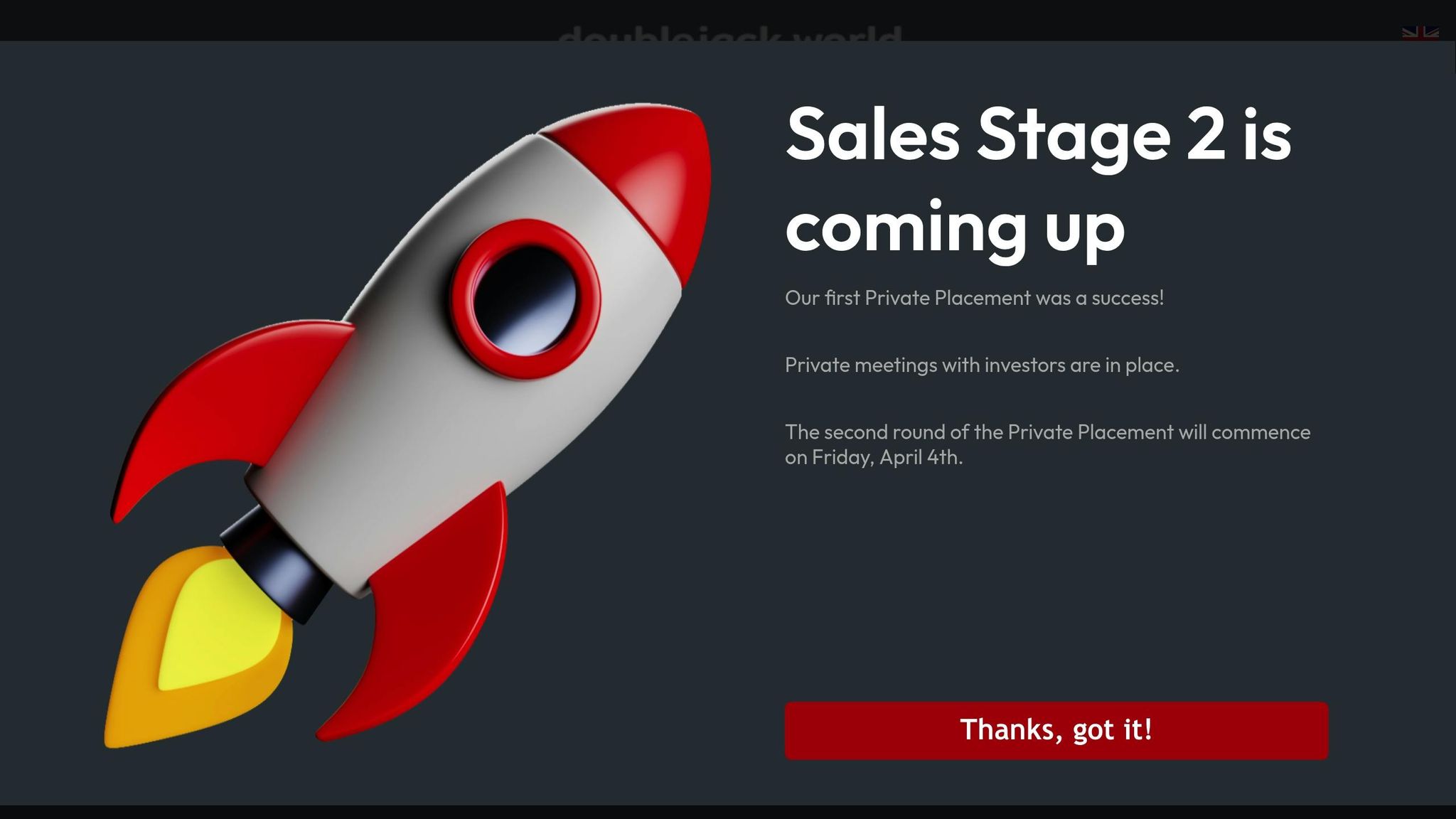
Tokenized Governance in Gaming: How It Works
Tokenized governance gives players a direct role in shaping gaming platforms using blockchain-based governance tokens. Here's how it works:
- Players Have a Voice: Governance tokens let players propose changes, vote on updates, and influence game decisions.
- Blockchain Transparency: Votes and decisions are securely recorded on the blockchain, ensuring trust and accountability.
- Smart Contracts Automate Changes: Approved decisions are implemented automatically via smart contracts, streamlining updates.
Key Benefits:
- Player Involvement: Encourages active participation and community engagement.
- Faster Updates: Player-driven decisions align games with user expectations.
- In-Game Economy Management: Tokens help refine reward systems and gameplay mechanics.
Platforms like Axie Infinity and doublejack DJCK Digital Money are already using tokenized governance to involve players in decisions, build trust, and improve gaming experiences. It’s a system that’s redefining how players and platforms interact.
How Tokenized Governance Works in Games
Token Creation and Distribution
Gaming platforms set up governance token systems to give players a voice while keeping things fair. Tokens are distributed in multiple ways, such as rewarding active gameplay, contributions to the community, platform improvements, and initial sales. This approach spreads influence across the player base and encourages participation. Once players receive tokens, they can use them to propose ideas and vote on platform updates.
Voting and Proposal Systems
With tokens in hand, players can suggest improvements through a blockchain-based system. Eligible players submit proposals, while token holders vote on them. The blockchain keeps a secure record of all voting activity. Voting power depends on how many tokens a player holds, but quadratic voting is often used to limit any single player from having too much sway. Once votes are in, smart contracts ensure decisions are carried out automatically.
Smart Contract Implementation
Smart contracts are the engine behind tokenized governance, ensuring decisions are implemented without manual intervention. These contracts handle tasks like checking proposal validity, counting votes accurately, and executing approved changes. The process is divided into stages - proposal, voting, review, and execution - with safety measures in place to catch and pause any issues along the way.
Setting Up Gaming Governance
Blockchain Selection
Choose a blockchain that can handle a high number of transactions, offers low fees, and supports advanced smart contracts. Here’s what to look for:
- Transaction Speed: Quick processing ensures smooth voting and proposal management, keeping players engaged.
- Transaction Fees: Lower costs encourage players to participate more often.
- Smart Contract Support: Enables the implementation of complex governance systems.
- Security: Strong safeguards protect against vote tampering and potential attacks.
- Scalability: Handles an expanding player base without slowing down performance.
Make your blockchain decision before planning token distribution to ensure everything integrates smoothly.
Current Uses and Results
Success Stories in Gaming
Tokenized governance is transforming gaming communities by putting decision-making power in the hands of players. A standout example is Axie Infinity, where player voting directly influences game development and community activities. This approach has paved the way for greater involvement and ownership among players.
Impact of Player Participation
Tokenized governance isn't just a buzzword - it actively enhances the gaming experience. By involving players in decisions, it strengthens their connection to the game, increases engagement, and stimulates in-game economies. The result? A stronger, more active player base.
doublejack DJCK Digital Money Integration

As discussed earlier, doublejack DJCK Digital Money is reshaping gaming governance with its blockchain-based platform. It offers secure digital wallets, real-time transactions, and blockchain-verified voting, all while being accessible globally. These features are powered by its ISO 20022-compliant, dual-asset system, which is backed by gold reserves and revenue from iGaming.
Through tokenized fan engagement, the platform creates a more interactive governance structure. It seamlessly integrates with existing gaming ecosystems, ensuring that decisions made through governance are implemented quickly and transparently within the game.
sbb-itb-4720f98
Building Virtual Worlds: @Sandbox’s Path to a Decentralized ...
Common Issues and Solutions
Even with tokenized governance in place, certain challenges remain. Addressing these requires specific strategies to ensure effective and fair systems.
Preventing Power Concentration
To avoid decision-making being dominated by a few, platforms use several methods:
- Quadratic voting: Increases the cost of additional votes, making it harder for large token holders to dominate.
- Time-lock mechanisms: Require tokens to be staked for a set period, discouraging short-term manipulation and encouraging long-term involvement.
- Delegation caps: Limit the voting power any single wallet can hold, preventing excessive influence.
These steps help maintain a more balanced and equitable governance system.
Security Measures
Protecting the system from vulnerabilities is critical. Key practices include:
- Multi-signature approvals: Prevent decisions from relying on a single point of failure.
- Timelock delays: Introduce a waiting period between proposal approval and implementation, allowing the community time to review.
- Regular smart contract audits: Engage third-party experts to identify and fix potential weaknesses.
These measures ensure safer and more transparent decision-making processes.
Privacy vs. Transparency
Striking the right balance between privacy and openness is crucial. Effective approaches include:
- Zero-knowledge proofs: Validate votes without revealing personal details.
- Selective disclosure options: Let users choose what governance activity they share.
- Encrypted discussion channels: Enable private conversations while keeping final decisions publicly accessible.
These strategies help platforms like doublejack DJCK Digital Money maintain secure and transparent governance systems.
Conclusion
Key Takeaways
Tokenized governance has reshaped how players engage, allowing blockchain-based voting to facilitate transparent and swift decision-making while building trust within gaming communities.
Governance tools like quadratic voting, time-locks, and multi-signature approvals provide secure systems that serve everyone involved. These mechanisms lay the groundwork for even more participatory and efficient gaming governance in the future.
Looking Ahead
Tokenized governance is advancing quickly, with several trends shaping its future:
- Improved Integration: Platforms like doublejack DJCK Digital Money are combining governance tokens with existing gaming systems to deliver secure and seamless player experiences.
- Cross-Platform Compatibility: Industry leaders are developing unified governance standards to enable smooth participation across different gaming ecosystems, simplifying how players engage on multiple platforms.
The future of gaming governance is focused on creating systems that empower players while ensuring platform stability. As blockchain technology continues to develop, expect new ways to enhance community-driven decision-making.

